Molybdenum CNC Machining Services for Your Custom Parts
With 20 years of Molybdenum CNC machining experience. AT-Machining Empowering Your Designs with Unmatched Accuracy!
- Certified Materials
- Factory Price
- No Minimum Order
- Fast Turnaround
- Real Factory - Weicome Visit

Benefits of Molybdenum in Machining
Techniques Used in Molybdenum Machining
Are you looking for a reliable, quick-turn supplier of machined Molybdenum components? Look no further, AT-Machining offers the best CNC Molybdenum machining service in the industry. Our highly qualified ISO9001-certified machine shop can make any custom design, simple or complex project. We provide rapid prototyping, small-batch machining, and high-volume production of end-use components.
Our fast and precision CNC machining capabilities include services for CNC Milling, CNC Turning, and CNC Drilling and a variety of Post-processing, with flexible production, and shipping options to meet you at the perfect price and product development stage.
Our team of experts is available 24/7 to answer any questions or help with your project.

CNC Milling
3 Axis, 4 Axis and 5 Axis CNC Machining Service for simple and complex geometries parts.

CNC Turning
CNC turning with live tools combines lathe and milling capabilities to machine parts with cylindrical features.
Comparison of Common Molybdenum Alloys in CNC Machining
These grades are chosen based on their unique properties such as high strength, excellent thermal conductivity, and resistance to high temperatures and corrosion, making them ideal for various demanding applications in CNC machining.
 | Pure Molybdenum (Mo-1) | Molybdenum TZM | Molybdenum-Lanthana (MoLa) | Molybdenum-Copper (MoCu) | Molybdenum-Rhenium (MoRe) |
| Composition | 99.95% Molybdenum | 99% Mo, 0.5% Ti, 0.08% Zr | 99.1% Mo, 0.3%-1.2% La2O3 | 70-90% Mo, 10-30% Cu | 47.5% Mo, 52.5% Re |
| Density | 10.28 g/cm³ | 10.22 g/cm³ | 10.18 g/cm³ | ~9.90 g/cm³ | 13.92 g/cm³ |
| Melting Point | 2620°C | 2617°C | 2620°C | Varies (Cu melts lower) | 2620°C (Mo), 3186°C (Re) |
| Tensile Strength at Room Temp | 550 MPa | 655 MPa | 580 MPa | Variable, generally lower | 1100 MPa |
| Hardness | 220 HV | 250 HV | 230 HV | Lower, variable | 310 HV |
| Thermal Conductivity | 138 W/m.K | 140 W/m.K | 140 W/m.K | 170-230 W/m.K | 90 W/m.K |
| Thermal Expansion Coefficient | 4.9 x 10⁻⁶ /°C | 5.4 x 10⁻⁶ /°C | 5.1 x 10⁻⁶ /°C | 7.1 x 10⁻⁶ /°C | 6.2 x 10⁻⁶ /°C |
| Applications | Electronics, lighting, high-temp parts | Aerospace, high-temp furnaces, dies | High-temp furnace components, aerospace | Heat sinks, electrical contacts, thermal mgmt | Thermocouples, aerospace, high-temp parts |
| Machinability | Moderate, requires careful handling | Good, needs sharp tools and coolant | Good, enhanced creep resistance | Better than pure Mo due to Cu content | Challenging, requires specialized tools |
Please note: these indicators are for reference only, if there are detailed performance requirements, please contact us!
Applications of Molybdenum CNC Machining

Aerospace Components
Molybdenum CNC machining produces high-strength, heat-resistant components for aerospace applications, including turbine blades, nozzles, and structural parts, ensuring durability and performance in extreme environments.

Electronic Parts
Molybdenum is used in CNC machining to create electronic components such as heat sinks, transistors, and circuit board substrates, offering excellent thermal and electrical conductivity.

Medical Devices
Precision CNC machining of molybdenum produces reliable, biocompatible medical devices and implants, including surgical instruments, prosthetics, and diagnostic equipment, meeting stringent industry standards.

Industrial Machinery
CNC machined molybdenum parts are utilized in industrial machinery, providing superior wear resistance, thermal stability, and strength for components like molds, dies, and high-temperature furnace parts.

Automotive Components
Molybdenum CNC machining creates durable automotive parts, including engine components, exhaust systems, and transmission parts, enhancing performance and longevity under high-stress conditions.
Surface Finishes For CNC Machined Molybdenum Parts
Many types of surface finishes can be applied to CNC machined aluminum parts. Each surface finish offers unique benefits and is chosen based on the specific requirements of the application, such as appearance, corrosion resistance, and functional performance.
| Name | Description | |
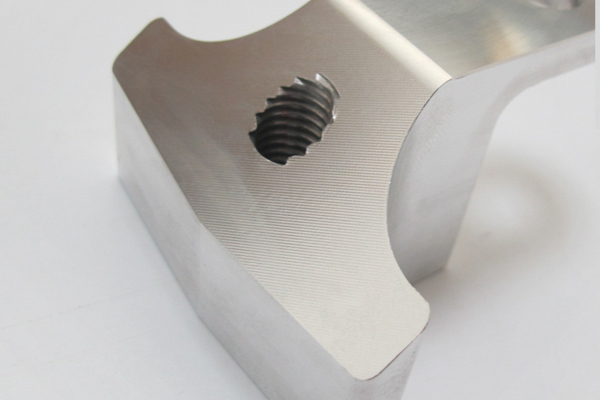 | As machined | The part is left with the surface finish directly from the CNC machining process, featuring visible tool marks and a roughness average (Ra) typically between 3.2 and 6.3 micrometers. |
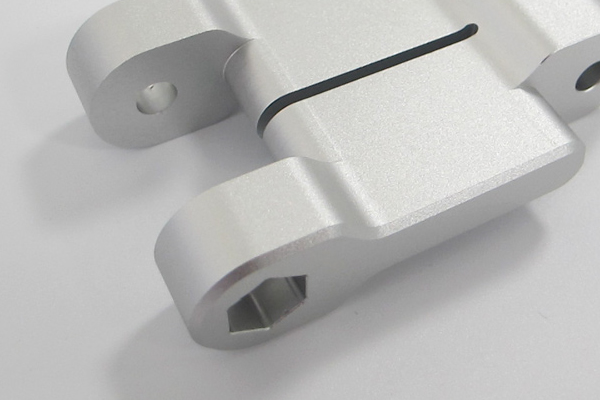 | Bead Blasted | Abrasive beads are blasted at the part’s surface, creating a uniform matte or satin finish. This process removes tool marks and minor surface imperfections. |
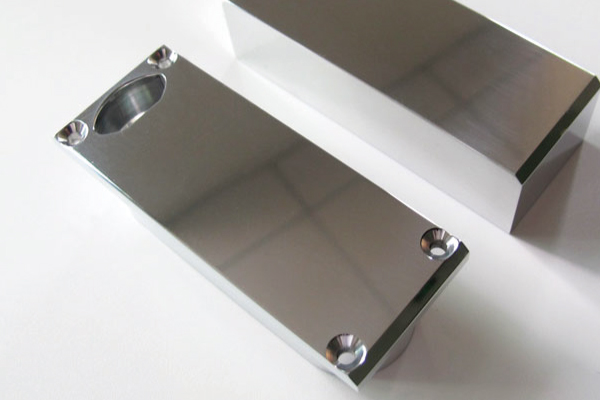 | Electropolishing | A chemical process that removes a thin layer of material from the part’s surface, reducing roughness and improving the finish to achieve a bright, smooth surface. |
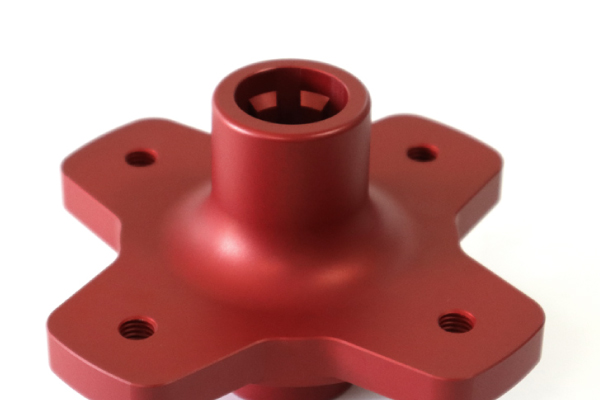 | Chemical Etching | A chemical process that creates a matte finish by uniformly etching the surface of the part, which can also improve surface adhesion for subsequent coatings. |
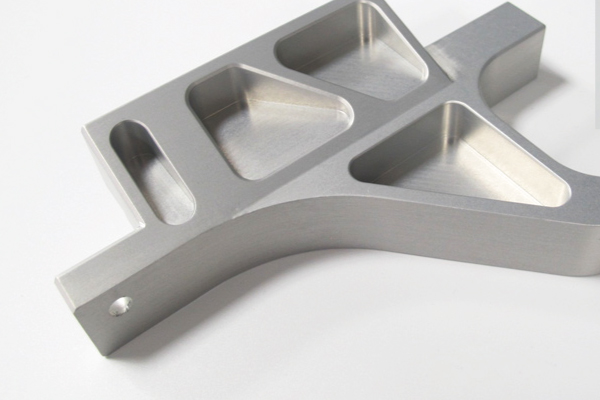 | Passivation | A chemical treatment that removes contaminants from the surface and enhances the natural oxide layer, improving corrosion resistance without changing the part’s appearance. |
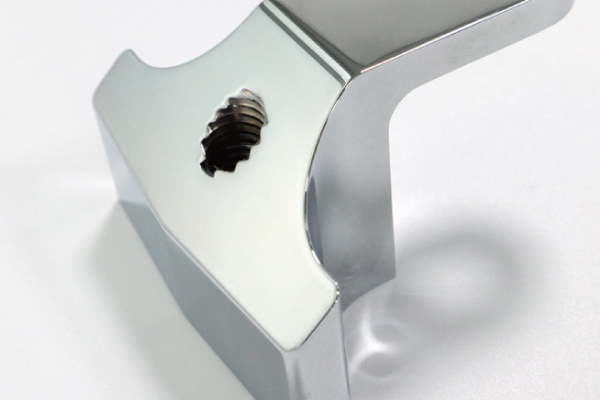 | Black Oxide Coating | A conversion coating applied to the surface, providing mild corrosion resistance and a black matte finish. It is mainly decorative and provides minimal protection. |
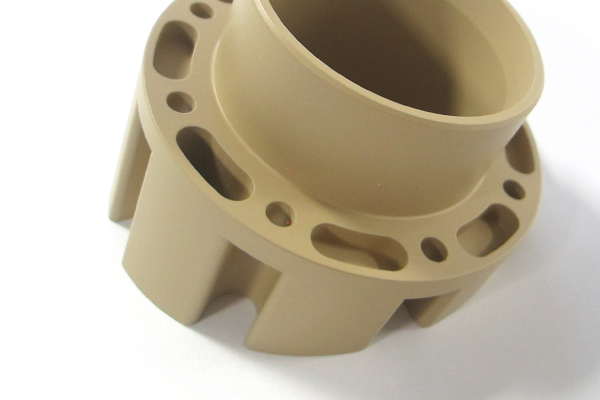 | Powder Coat | A dry powder is electrostatically applied to the part’s surface and then cured under heat, forming a hard, durable coating that provides excellent protection and aesthetic finish. |


